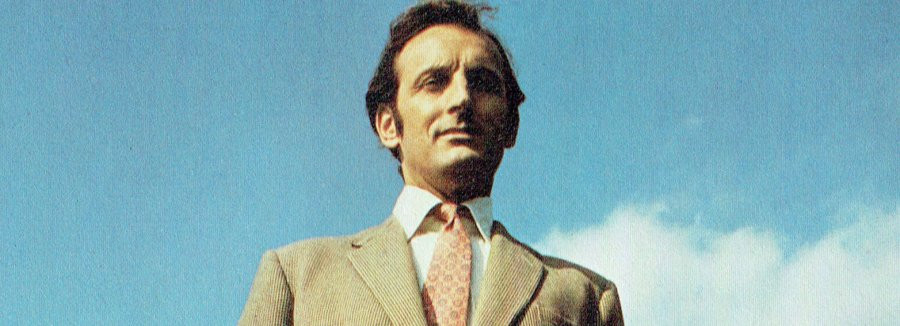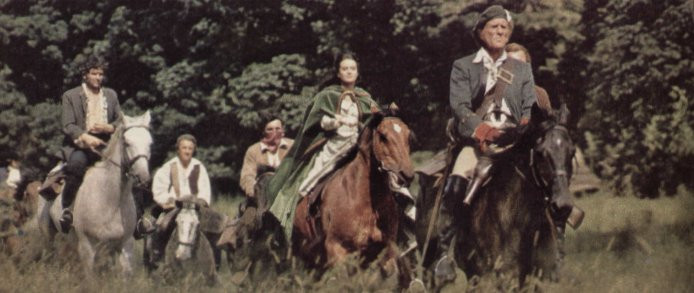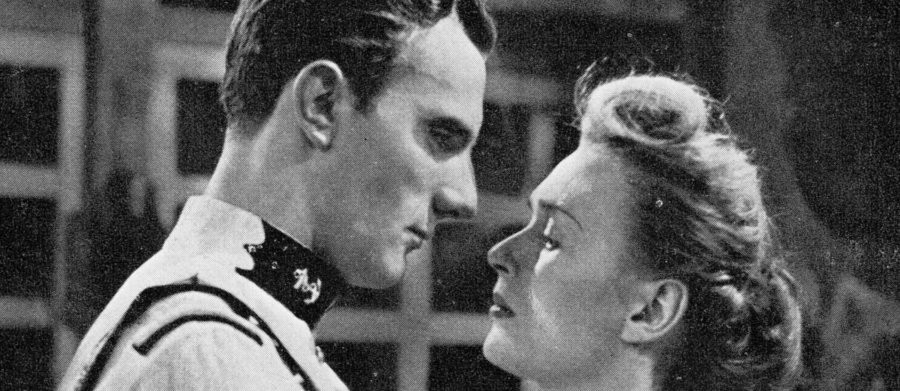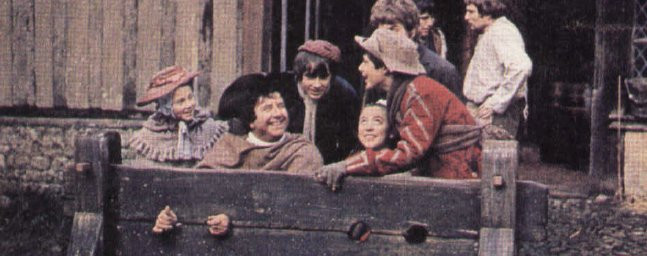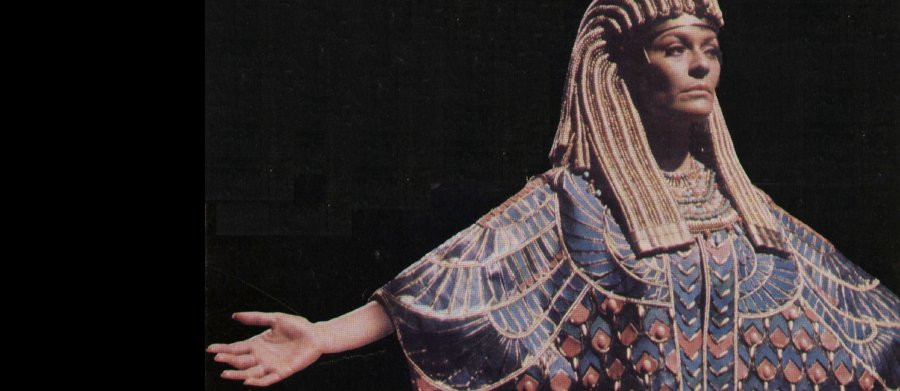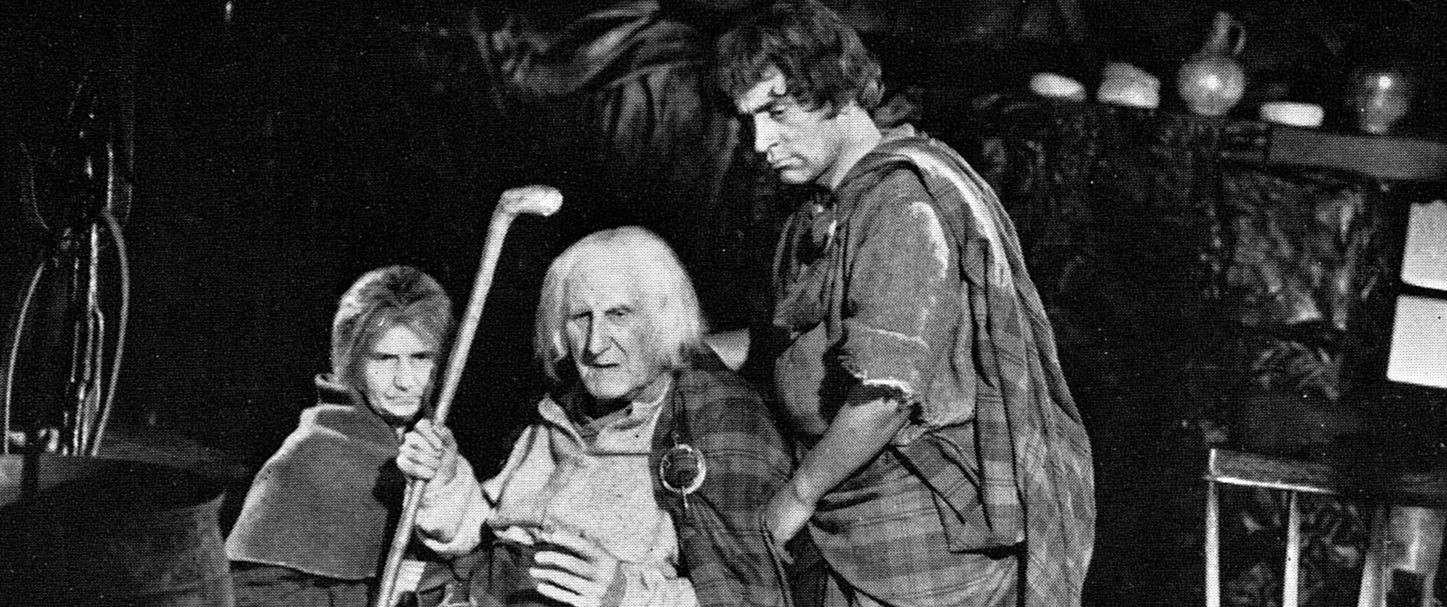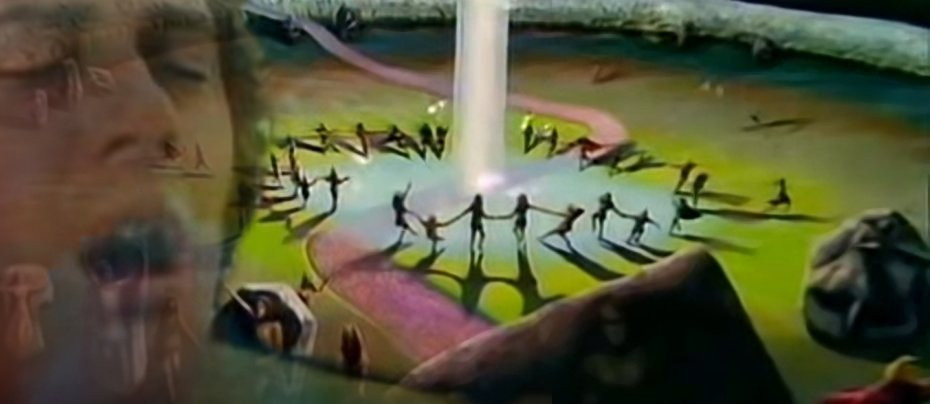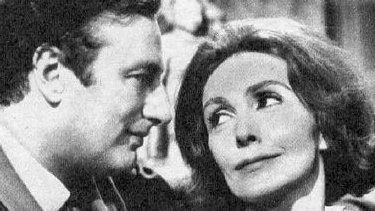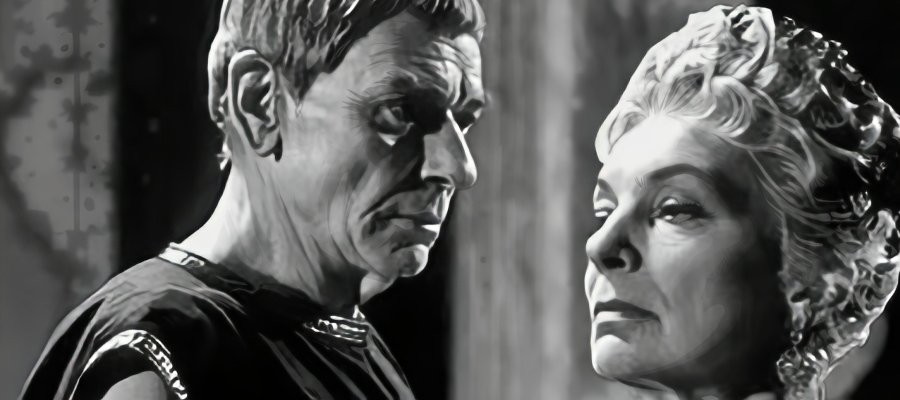
The Caesars
1968 - United KingdomBroadcast to tremendous critical acclaim in 1968, The Caesars remains one of the last truly great black-and-white drama productions made for ITV by Granada Television. In a time before colour dominated the small screen, this bold and uncompromising series delivered an unrivalled period drama that explored the murky depths of power, ambition, and madness in ancient Rome.
At the heart of The Caesars is a chillingly plausible depiction of the transition from republic to empire, beginning with the absolute rule of Augustus, played with quiet authority by Roland Culver. After a century torn apart by ruinous civil wars and factional strife, Rome is portrayed as a weary state—ready, perhaps even desperate, to trade freedom for the promise of internal peace. The series boldly suggests that Augustus’ brand of dictatorship was both a remedy and a new disease, one that would fester across the generations that followed.
The narrative is steeped in intrigue, betrayals and moral decay, deftly charting the course of Rome’s descent into imperial madness. As Augustus' grip begins to loosen in his later years, the spectre of succession looms large, with deadly consequences. The drama doesn’t flinch from depicting the murder, sex, and psychological turmoil that came to define Rome’s emperors. Yet what sets The Caesars apart is its refusal to indulge in melodrama; instead, it opts for a sober, intelligent approach to its subject, far more grounded than later adaptations like I, Claudius, which it pre-dated by a full eight years.
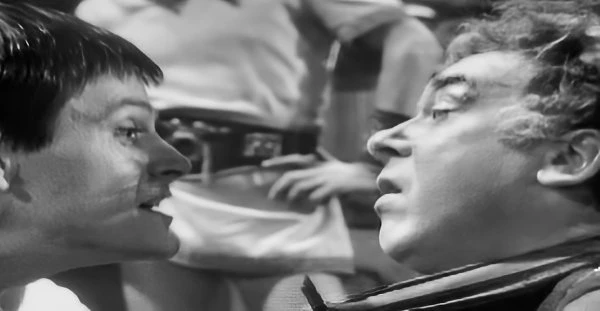
Performance-wise, the series is a masterclass in character acting. Freddie Jones delivers a mesmerising, award-winning performance that captures both the grandeur and the grotesquery of imperial power. Andre Morell and Ralph Bates provide equally compelling portrayals, anchoring the narrative with gravitas and complexity. Together, the cast breathe vivid life into historical figures who might otherwise have remained mere names in dusty texts.
Although filmed in black and white, The Caesars loses none of its visual impact. If anything, the stark palette enhances the series’ bleak, unvarnished tone—Rome here is not a place of golden glory, but of shadow, blood, and steel.
In all, The Caesars is a forgotten gem of British television—intelligent, unflinching, and superbly acted. For those with an interest in classical history or historical drama, it is essential viewing. Its legacy deserves to be remembered alongside the very best the genre has to offer.
Seen this show? How do you rate it?
Seen this show? How do you rate it?
Published on December 2nd, 2018. Written by Laurence Marcus for Television Heaven.


